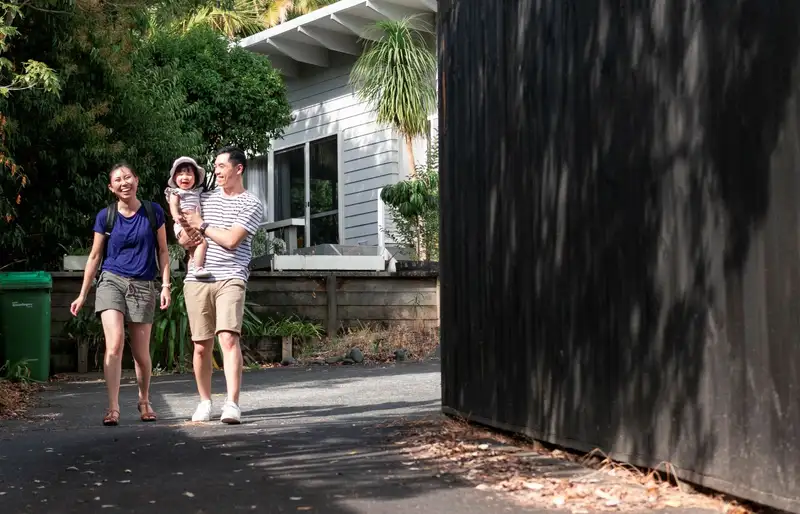Decide what you're looking for
Before you start looking, think about what your ideal home looks like. This will make it easier for you to research and visit properties, and keep you on track.
Here are a couple handy things you can do:
- Make a list of all the features you imagine being in your home, then split them into wants and needs. What could you compromise on? What does the property definitely need to have? For example, number of bedrooms, a garden, a garage, storage space, a bath.
- Consider location, location, location: Do you already have an area in mind? What do you want to be nearby? Consider the proximity to schools, access to public transport, shops and other amenities.
- Know your budget: Nail down your price range before you go looking. You can use our home loan calculators to help work this out.
Start searching for properties. Websites like oneroof.co.nz, homes.co.nz, realestate.co.nz, Trade Me property insights and QV.co.nz can give indications of house values and potential price ranges. Even if you're not sure about a place, keep an open mind — it might be worth a look. Note down which properties you'd like to visit in person.
Open home checklist
Take your own wants and needs checklist to the open home and see how the property scores against what you're looking for.

Here are some other details to pay attention to:
- Windows — do they open and close properly and are they airtight? Do you feel any drafts?
- Water pressure — check that the taps, showers and toilet flushes have enough pressure
- Power points — are there enough and what condition are they in? Are there any electrical issues and how old is the fuse board?
- Lights and light switches — check that these work
- Appliances — check the condition of any appliances that are included in the chattels, for example ovens and extractor fans
- Insulation and ventilation — are these sufficient and up to standard?
- Gutters and spouting — do these look in good condition and are they without cracks?
- Storm water drains — does the property have these? Are there any water sources nearby that could flood?
- Easy access — are stairs and paths to the house in good condition?
- Hidden problems — can you spot any signs of damp, mold or dry rot? Are there any cracks in walls, doors or windows that don’t sit square and floors that aren’t level? Do you think any issues are being covered by a rug, furniture or scented candle?
Don't worry if you don't manage to cover all of the above. Once you decide you'd like to progress with the property, you can get an expert in to carry out a proper building inspection — they should cover all of this and more.
It's also a good idea to visit the property a few times on different days of the week and at various times of the day. This can give you a better picture of what living in the property will be like in terms of sunlight, traffic and the general noise and vibe of the surrounding streets and suburb.
Start doing due diligence
Cover your legal bases
Find out if there are any restrictions on how you can use the property and that any renovations or extensions have all the necessary permits and consents. A real estate agent also has to disclose information about any known issues or problems with a property if you ask.
Get a lawyer involved to help you navigate this. Make sure you answer these questions:
- Could you sub-divide the property if you wanted to?
- Are there any covenants on the property?
- Do sheds, garages and decks have consents or permits if they need them?
- Is access shared with any other houses? If so, who pays for upkeep? Who owns the driveway or the fringe of lawn by the road?
- If you’re looking at an apartment, get a copy of the minutes of recent body corporate meetings and request their financial information.
Checks and reports
Get professionals in to check the condition of the property before you make an offer. If there’s work that needs doing, make sure you understand the extent of it.
Find out more about common checks and reports before you think about making an offer.
Let's get you into your first home
Our home loan specialists and tools can help you through the journey of buying your first home.
Talk to a specialist
Our home loan specialists can walk you through the process of buying a home and discuss what your options are.
Find a specialistFirst home buyer calculator
Our first home buyer calculator allows you to work out how much you may be able to borrow and compare different repayment scenarios.
Calculate nowGet first home buyer tips in your inbox
Be at the top of your home buying journey with tips, offers, support and helpful information from our experts delivered straight to your email inbox.
Sign up for the newsletterHome loan standard terms and conditions
Displayed interest rates are subject to change. Kiwibank’s lending criteria, terms and conditions, and fees apply.